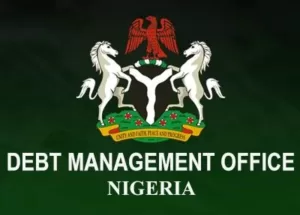As efforts are being made by President Bola Tinubu to get Nigeria’s economy out of the economic mess it has been plunged, the Debt Management Office (DMO) has warned against more borrowing.

The DMO, has advised the administration of President Bola Ahmed Tinubu to look for ways to increase revenue generation instead of going to borrow.
According to the DMO, the advise became necessary because about 73.5% of revenue generated this year will be used to service debt.
Read Also: Explainer: Why World Bank Loan Is Good For Nigeria -DMO
DMO’s Advise To FG
More borrowing at this time is a threat to debt sustainability, with the current state of the economy, that is simply putting the nation at risk.
The DMO explained that the projected FG Debt Service to Revenue ratio of 73.5% for 2023 is high and cannot support higher levels of borrowing.
Thus, it advised the government to focus on increasing revenue generation, stressing that attaining a sustainable Debt Service-to-Revenue ratio will require increasing FGN revenue.
The increment in revenue generation has been pegged at ₦10.49 trillion projected in 2023 budget to about ₦15.5 trillion.
It gave this advise as part of recommendations to the Federal Government, following analysis of the nation’s debt profile in 2022.
According to the DMO, an analysis of the report of the Annual National Market Access Country (MAC) Debt Sustainability Analysis for 2022, “the Total Public Debt-to GDP ratio is projected to increase to 37.1% in 2023, relative to 23.4% as at September 2022.
“This is due to the inclusion of the ₦8.80 trillion (new borrowings) for the year 2023, the FGN Ways and Means at the CBN of over ₦23 trillion and estimated Promissory Notes issuance of ₦2.87 trillion in the debt stock.
“The Country’s Debt stock remains sustainable under these criteria, but the borrowing space has been reduced when compared to Nigeria’s self-imposed debt limit of 40% set in the MTDS, 2020-2023.
“On the other hand, FGN Debt Service-to-Revenue ratio at 73.5% in 2023 exceeds the recommended threshold of 50% due to low revenue, which means that there is need to significantly increase government revenue.
Recommendations
“The total public debt-to-GDP ratio at 45.4% in 2023 exceeds Nigeria’s self-imposed debt limit of 40%, while the FGN Debt Service-to-Revenue also exceeds the recommended threshold of 50%.
“Based on the analysis of the results of the 2022 MAC-DSA, the DMO recommends the following:
“Although the analysis projects total public debt-to-GDP ratio at 37.1% for 2023, indicating a borrowing space of 2.9% (equivalent of about ₦14.66 trillion) when compared to the self-imposed limit of 40%.
“It is recommended that this should not be used as a basis for higher level of borrowing as was the case in the 2023 budget.
“This is because the outcome of the shock scenario, which is more realistic in the circumstances, exceeded the self-imposed limit.
“The projected FG debt service-to-revenue ratio at 73.5% for 2023 is high and a threat to debt sustainability. It means that the revenue profile cannot support higher levels of borrowing.
“Attaining a sustainable FG debt service-to-revenue ratio will require an increase of FGN revenue from ₦10.49 trillion projected in 2023 budget to about ₦15.5 trillion.
“With respect to expansion in fiscal deficit, there is need to strictly adhere to the provision of extant legislations on government borrowing, especially the 2007 and Central Bank of Nigeria Act, 2007, as it relates to Ways and Means advances, in order to moderate the growth rate of public debt.
Read Also: China Loan: “Ignore Fake News” DMO Urge Nigerians
DMO Suggests Ways To Increase Revenue Generation
“There is urgent need to pay more attention to revenue generation by implementing far reaching revenue mobilisation initiatives and reforms,
“Strategic Revenue Growth Initiatives must be employed to raising the country’s tax revenue to GDP ratio from about 7% (one of the lowest in the world) to that of its peer.
“Government should encourage the private sector fund infrastructure projects through the Public-Private Partnership, PPP, schemes.
“Capital projects in the budget being funded by borrowing should be removed to reduce budget deficit and borrowing.
“Government can reduce borrowing through privatisation and/or sale of government assets.”
See Tinubu plans to tackle insecurity in this video.

